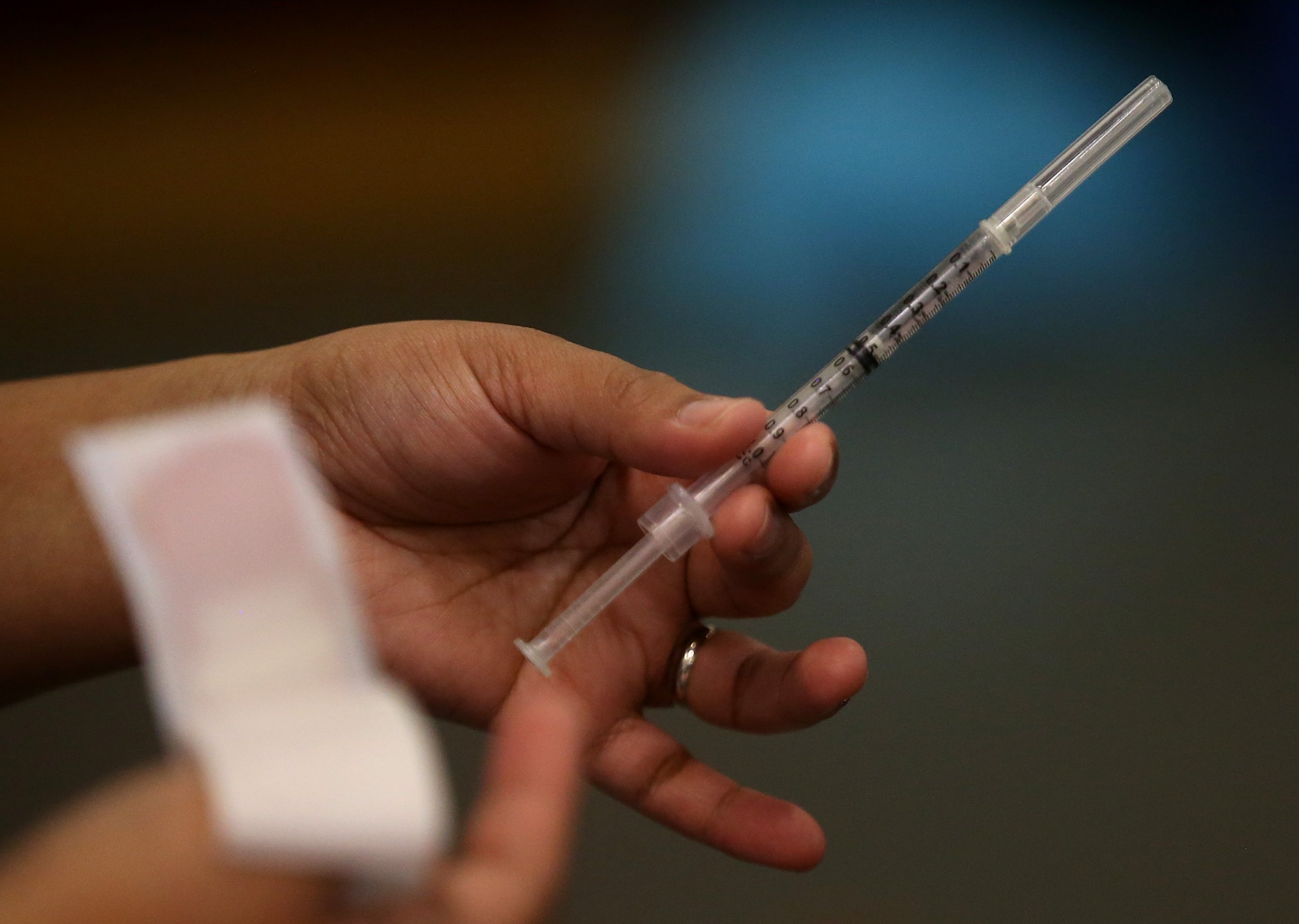
Updated | This year's flu shot is only about 25 percent effective against the most common strain of influenza spreading throughout the United States, causing one of the worst flu seasons in recent memory. The Centers for Disease Control and Prevention published a preliminary estimate of the vaccine's effectiveness on Thursday.
Based on data from more than 4,500 people in five states, the vaccine appears to be about 36 percent effective against all the strains of the flu.
What that number means is that if you are vaccinated and you run into a flu virus, you have a 64 percent chance of getting sick.
"This season's vaccine performed overall about as we expected," acting CDC director Dr. Anne Schuchat said during a press conference on Thursday. "but we realize there is room for improvement." There are likely still several more weeks of flu season left, she noted.
Though the numbers sound grim, they're actually slightly better than expected based on data published by Canadian researchers which suggested that the vaccine was only about 17 percent effective against the H3N2 strain. (The Canadian study found that the vaccine's overall effectiveness was about 42 percent.)
The relative ineffectiveness of the vaccine may have something to do with how it's made, Stephen Morse, an epidemiologist at the Columbia University Medical Center, told Newsweek. Flu vaccines are made using eggs, which is unusual. "Almost all of our other vaccines are made by much more modern methods," said Morse, who was not involved with the CDC study. "Influenza is a big exception."
Usually that method doesn't interfere with the efficacy of the vaccine. But the strains used for the immunization can adapt to the egg and become less effective against the flu.
Both the Canadian paper and the CDC data show the vaccine did much better against other strains. The CDC estimated the shot was about 67 percent effective against the H1N1 strain of flu. It also did a better job of protecting younger people. Children who were vaccinated cut their risk of getting the flu in half even against the H3N2 strain—results that are "better than we were expecting," Schuchat said.
But 36 percent is still a very low rate, raising questions about the usefulness of having the flu shot. About two in five Americans were vaccinated against this season's flu by early November. Typically, about half of all Americans get the shot before the season ends. That may not seem like many people, but not enough flu vaccines were produced for every single American to be vaccinated. According to the CDC's website, up to 166 million flu vaccines were produced this year.
And according to Morse, who says he has a flu shot every year, even half the country having the vaccine may be enough, making the shot not only worthwhile but important. "If 50 percent of the population were protected, one way or another, we could essentially prevent an influenza epidemic," he said. "But we've never succeeded in doing that."
This article has been updated to include comments from Dr. Anne Schuchat.
Uncommon Knowledge
Newsweek is committed to challenging conventional wisdom and finding connections in the search for common ground.
Newsweek is committed to challenging conventional wisdom and finding connections in the search for common ground.
About the writer
Kate Sheridan is a science writer. She's previously written for STAT, Hakai Magazine, the Montreal Gazette, and other digital and ... Read more
To read how Newsweek uses AI as a newsroom tool, Click here.








